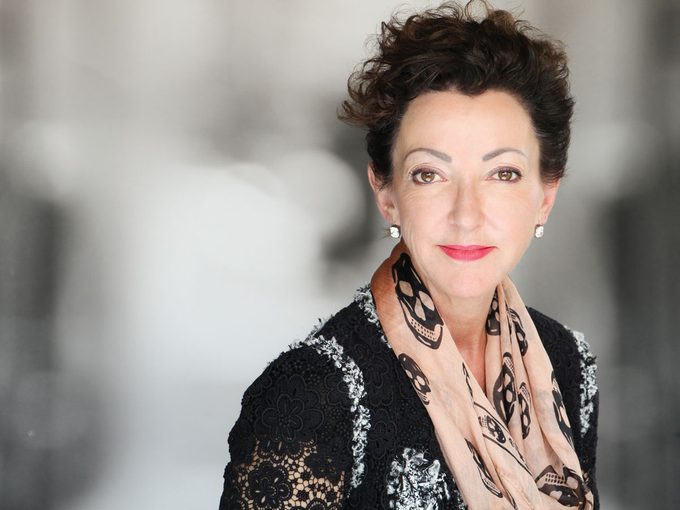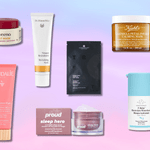Jane Wurwand: The Heart and Smarts Behind Dermalogica
Our editor-in-chief, Beth Thompson, chats with the enigmatic Jane Wurwand, founder of Dermalogica and The International Dermal Institute

Source: Best Health magazine, November/December 2015
BH: How much of Dermalogica is Jane? Are you involved in everything, right from the germ of an idea?
JW: Yes. With most of those products, I will have the spark of an idea. Also, I test every product. No product gets approved until I’ve used it and I say, ‘Okay, I think it’s great.’
BH: With the changeover in ownership (Dermalogica was recently purchased by Unilever), do you see your role changing at all?
JW: My role with Dermalogica is pretty much the same, though my title has changed to chief visioneer. My role is about looking at where the gaps are and what we need to be doing for skincare and for the FITE initiative (the company’s social activism endeavour. See below.). I’ll be advising the Dermalogica team on what I see as being the next trends and what we need to be looking at.
BH: The skin that we’re born with isn’t the skin that we age with. It changes for a variety of reasons, and sometimes women have a hard time changing their routines. What’s your advice on this subject?
JW: We have a lot of attachment to things that served us in the past ‘ whether it’s a relationship or a product. Women will hold on to that makeup technique they used, or that style of dressing, or that hairstyle, because it’s part of their identities, so it’s obviously very deep and complex.
However, when I approach women and talk to them about their skincare routines and they say to me, ‘Well, I just love my current cream,’ this is what I say to them: ‘You know what, it’s a terrific product, and it would not be this successful if it weren’t. But I feel it probably doesn’t serve you as well as it once did and I think there are a lot of other options that would serve you better. What I’d really encourage you to do is let me give you a couple of products that you could add to your regimen or maybe alternate with your current product.’ It’s not about taking away items; it’s about trying out different products.
BH: Brilliant! Do you think we’re living in the most interesting time for skincare?
JW: I never think we are. I always think whatever’s coming up is going to be more interesting. But what I hope is interesting is the fact that we’re finally starting to see that skincare is being considered a part of self-care ‘ part of wellness, not part of the beauty industry. For me, that is critically important because I think if we’re considered to be part of the beauty industry, it marginalizes what we do and impacts women’s decisions.
There was a 10-year study done in 2010 by the World Bank. They took three countries ‘ Kenya, Brazil and Pakistan ’ and studied how women spent their disposable income (among other things) compared to men. Women in each of those countries, regardless of their background, their culture, their religion or how they were raised, revealed that they reinvest over 90 percent of what they make back into their families and communities. We will make sure our children eat, even if we go without food. We will make sure they are vaccinated and educated, even if we did not receive an education.
This is embedded in us as caregivers. So the minute we say the words ‘luxury, pampering, indulgence,’ it immediately brings up this huge subconscious thing ‘ of guilt. I am absolutely, and always have been, bound and determined to move skincare out of that arena. If you want to buy or not buy lipstick, that’s totally up to you, but you have to apply sunblock.
To me, this whole idea of moving into the wellness space and out of the beauty space starts to redefine what skincare will be. And I think that space is also occupied with meditation, with mindfulness, with massage, with yoga, with Pilates and so on. There’s a whole space developing, and it’s the most interesting thing in skincare that’s ever happened. I look forward to it continuing.
RELATED: Oncology Esthetics: How Spas Can Help Cancer Patients
BH: Is it ever too late to start a new skincare regimen?
JW: No! When my 79-year-old mother-in-law of Russian descent with fair colouring arrived in the U.S. after years under the South African sun, I immediately started her on Power Rich morning and night, as well as exfoliants, treatments and sunblock. And I will say that her skin has transformed. Today my mother-in-law is 88.
Does she look 23? No. She looks like an older woman, but her skin is so much finer and she has so much less pigmentation, she herself says it’s a miracle. It’s not a miracle; it’s just good skincare. So, no, it’s never too late to start.
The Right FITE
FITE, which stands for Financial Independence Through Entrepreneurship, is focused on helping women and girls around the world succeed in their communities. The program works by providing small loans and business resources to entrepreneurs, as well as supporting global opportunities that further girls’ education and vocation skills.
It was founded by Jane Wurwand, who was inspired after reading Half The Sky, a book by Nicholas Kristof and Sheryl WuDunn that shares stories of multiple women and the challenges they face.
For Wurwand, FITE ‘ 100 percent of which is funded by Dermalogica ‘ has never been a philanthropic cause but social activism with a social purpose. ‘If we empower half the planet ‘ women ‘ who we know will then put 90 percent of what they earn into their families, their communities, their schools, then that is a game-changer for the world.’ Learn more at joinfite.org.




